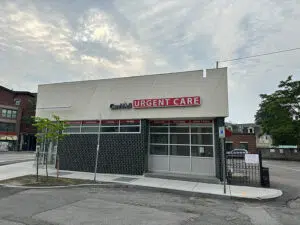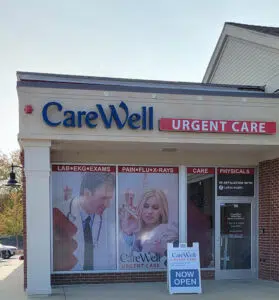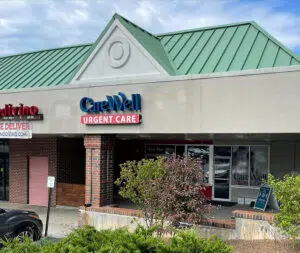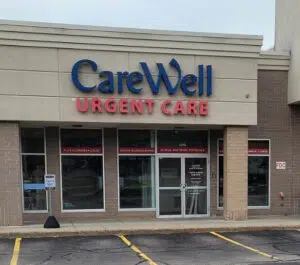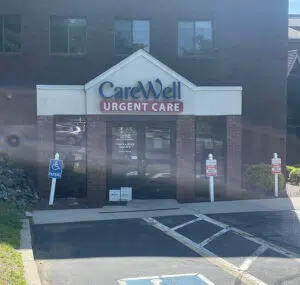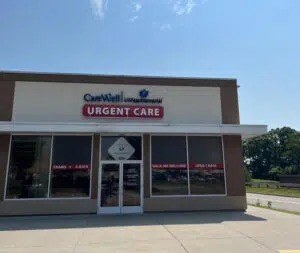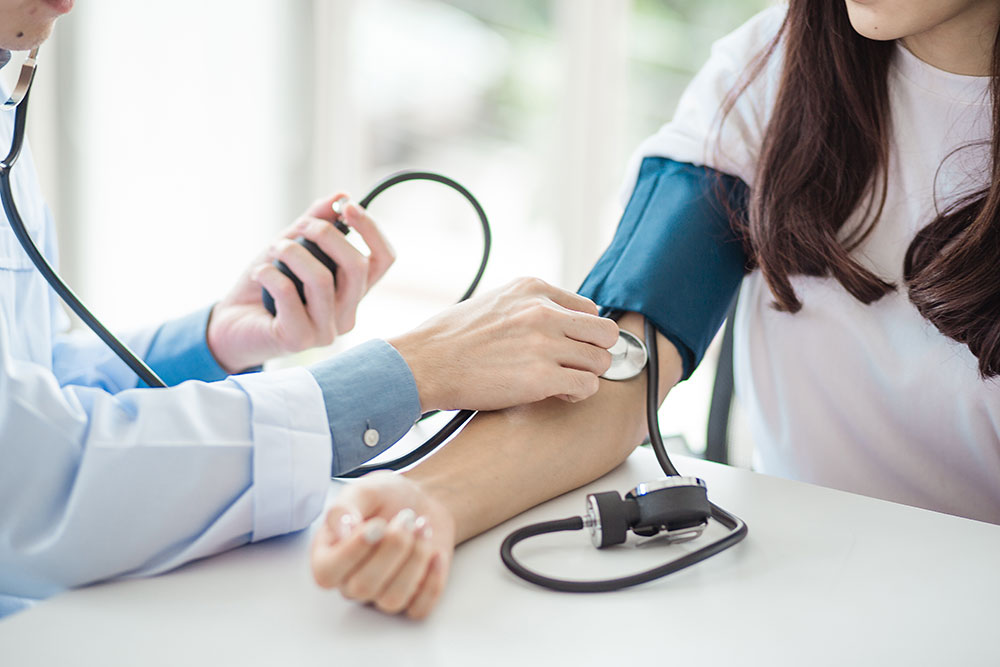
High blood pressure, also known as hypertension, is a common condition that affects nearly 50% of U.S. adults, according to the CDC. Many don’t even know they have it. This is a dangerous reality, as untreated hypertension can increase the risk of heart disease, heart failure, kidney failure, and stroke.
High blood pressure is often detected and managed by a primary care physician. However, there may be a long wait for an appointment, and it is helpful to have a trusted clinic to turn to for rapid, excellent care. CareWell Urgent Care can help treat high blood pressure at any of our convenient Massachusetts and Rhode Island locations.
When to Go to Urgent Care for High Blood Pressure
When To Go to the Emergency Room (ER)
Understanding where to go if you are experiencing high blood pressure is important. For a hypertensive crisis, which is defined by a blood pressure of 180/120 or higher, you should seek care in an emergency room. Blood pressure this high can lead to a stroke, heart attack, or other life-threatening consequences. Even at this elevated level, you may not experience symptoms of high blood pressure. Some people may experience:
- Intense headache.
- Vision changes.
- Difficulty speaking.
- Seizures.
- Chest pain.
- Breathing difficulty.
- Vomiting and nausea.
- Unresponsiveness.
If you notice extreme blood pressure or some of these symptoms, call 911 or seek emergency medical care. You may need emergency medications and assessment for a heart attack, stroke, or another life-threatening condition.
When to Go to Urgent Care
For other, less emergent blood pressure concerns, urgent care is an excellent choice. CareWell Urgent Care offers prompt care from our team of knowledgeable providers. You may feel unsure if your blood pressure is under control, you may have questions about your blood pressure or medications, or you may suspect you have hypertension. Our urgent care providers can handle a wide range of blood pressure concerns.
What Is High Blood Pressure?
Blood pressure can be defined as the pressure of the blood pushing on the walls of your arteries. High blood pressure occurs when this pressure is higher than normal, forcing your heart to work harder to pump blood and leading to damage to your blood vessels.
Understanding High Blood Pressure Numbers
It is important to understand the meaning of blood pressure measurements--including confusing abbreviations like “Dia,” “Sys,” and “mm Hg”--as well as normal blood pressure ranges. In general, normal blood pressure is 120/80 or lower. The first number represents systolic blood pressure (Sys or SBP). This is the pressure in your blood vessels when your heart is squeezing, or contracting. The second number corresponds to diastolic blood pressure (Dia or DBP), the pressure in your vessels when your heart is resting between beats. These numbers are measured in “millimeters of mercury,” or mm Hg.
Elevated blood pressure can be defined as a systolic blood pressure over 120 mm Hg. Beyond elevated blood pressure comes hypertension, which is classified in two stages. The first is stage 1 hypertension, defined as a systolic pressure between 130 and 139 mm Hg or a diastolic pressure between 80 and 89 mm Hg. Stage 2 hypertension includes a systolic over 140 mm Hg and a diastolic of 90 mm Hg or higher.
High Blood Pressure Treatment in Urgent Care
At CareWell Urgent Care, we bring together medical expertise and the convenience of urgent care, ensuring you get help and treatment for high blood pressure. Our welcoming staff will work to ensure you are comfortable and receive prompt care.
One of our experienced providers will review your vital signs (including blood pressure, heart rate, temperature, and oxygen level) and discuss your concerns and any symptoms of high blood pressure you may be experiencing. You can expect some questions about your personal or family medical history. This information will help your provider understand your history and risk factors related to hypertension, heart disease, and other conditions.
Depending on your concerns, symptoms, and medical history, you may need further diagnostic testing to screen for specific medical issues and reach a diagnosis. Our CareWell Urgent Care clinics are equipped with high-quality, onsite diagnostic services. This includes EKG testing, which your provider may order for a noninvasive look at your heart health. Our clinics also have X-ray capabilities and onsite labs for blood work or other necessary testing.
Your provider will take the time to ensure your concerns are addressed and you receive the care you need. This may include interpreting lab work, starting a new medication, or receiving a referral to a specialist.
When you need urgent care for blood pressure treatment, choose CareWell Urgent Care. Visit us today for trusted, exceptional care near you.


